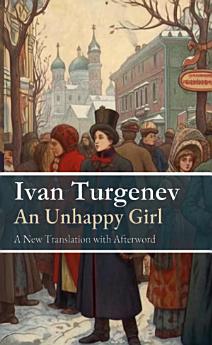An Unhappy Girl
About this ebook
The novella reflects Turgenev's keen sensitivity to the marginalization of the "other" in Russian society. Susanna's Jewish heritage, which isolates her, serves as a symbolic representation of how Russian society, especially the upper class, was steeped in anti-Semitic sentiments and xenophobia. The alienation she faces mirrors the broader exclusion and indifference experienced by various groups who did not conform to the dominant Russian Orthodox and aristocratic norms. Through his subtle and humane portrayal of Susanna, Turgenev challenges the reader to confront these prejudices and to consider the impact of social ostracism on personal identity and self-worth.
An Unhappy Girl also functions as an emotional exploration of identity and belonging, themes central to Turgenev's broader literary canon. Maximov, as narrator and outsider to Susanna's world, functions as a stand-in for Turgenev himself, a man who often felt alienated from both Russian society and the European circles in which he moved. The tragic conclusion of the novella
This critical reader's edition presents a modern translation of the original manuscript, crafted to help the reader engage directly with Turgenev's works through clean, contemporary language and simplified sentence structures that clarify his complex ideas. Supplementary material enriches the text with autobiographical, historical, and linguistic context, including an afterword on Turgenev’s history, impact, and intellectual legacy highlighting the personal relationships that shaped his philosophy (focusing on Dostoevsky, Tolstoy and Gogol), an index of the philosophical concepts he employs (emphasizing Realism and Nihilism) a comprehensive chronological list of his published writings, a brief biography, and a detailed timeline of his life.









